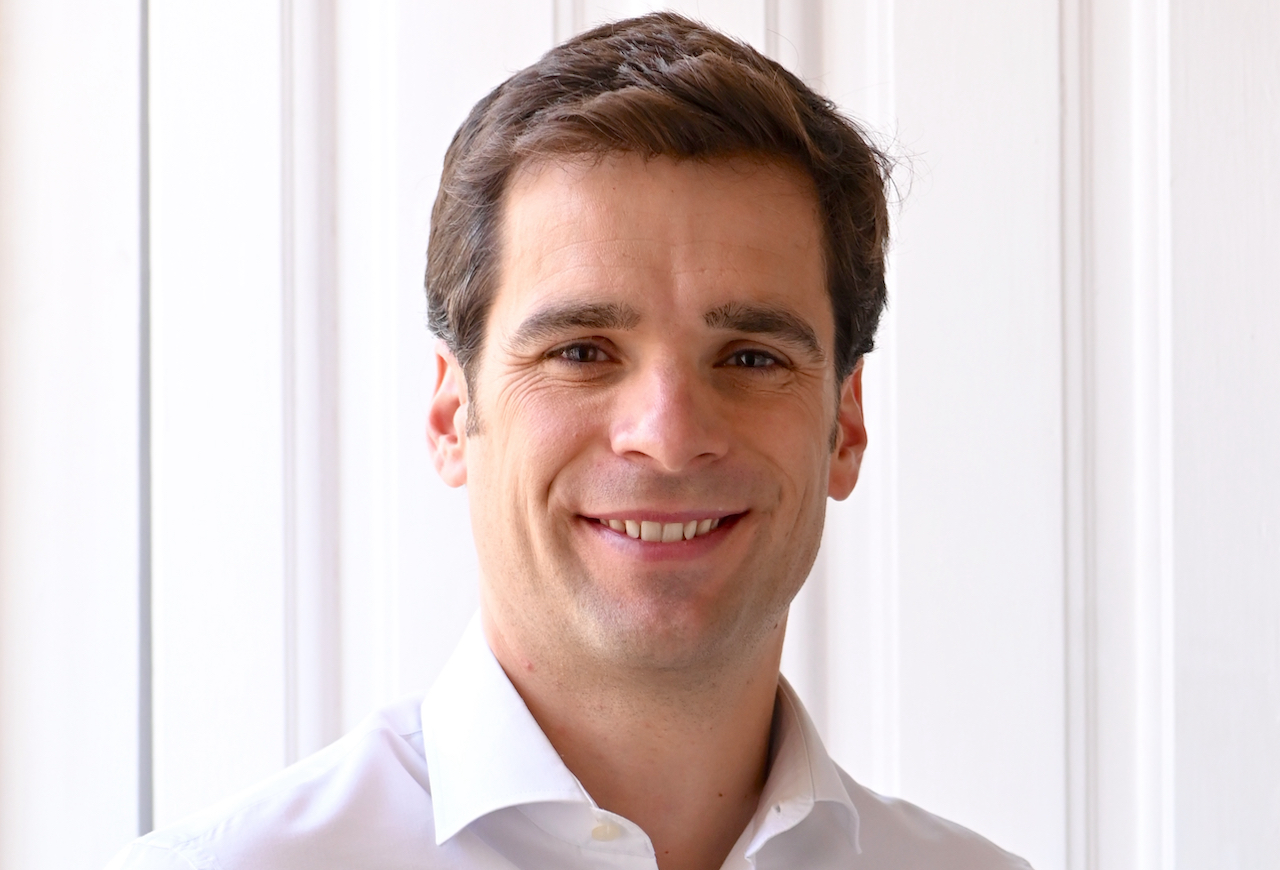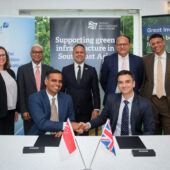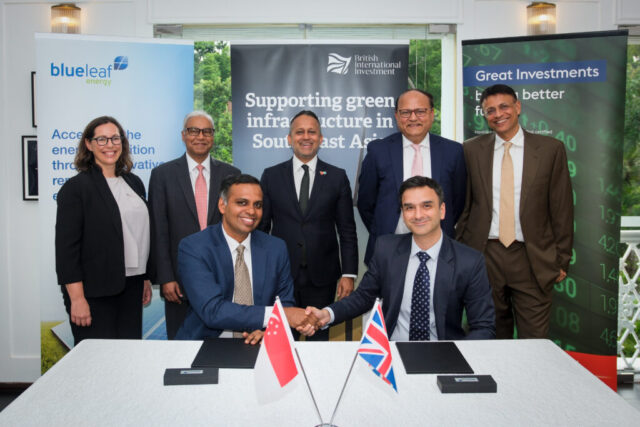Arturo Benito, CEO of Spain’s Impact Bridge Asset Management, talks about the company’s quest to drive social impact by building bridges between multiple stakeholders.

In brief
- November 2018: Impact Bridge Asset Management is launched by Arturo Benito, CEO, and Íñigo Serrats, managing partner
- September 2019: Launch of Impact Bridge’s first debt fund, IB Impact Debt
- October 2022: Creation of the Impact Bridge-IE Chair in Social Entrepreneurship and Impact Investing, a joint venture between IE University through the IE Foundation and Impact Bridge
- May 2023: Launch of Impact Bridge’s second debt fund, IB Deuda Impacto España
Impact Bridge was born from a passion for social development driven by Arturo Benito, one of its founders.
At the start of his career, after two years working as an analyst for Morgan Stanley in London, Benito handed in his resignation and left for Cambodia where, in partnership with local NGOs, he set up the Karuna Education Centre, a social enterprise providing computer and English language training to vulnerable people in the Northwestern city of Battambang. A few years later, Creciendo Juntos was born, a social enterprise organising summer camps for vulnerable children in Peru in association with local NGOs.

In 2014, three years after returning from Cambodia to the world of asset management and to his native city of Madrid, Benito came in contact with impact investing for the first time, after being charged with launching and managing four impact funds for local asset manager Equilibria Capital Management.
“Discovering impact investing was like manna from heaven. It allowed me to combine both my personal strengths with my passion and purpose for driving social change,” he says.
In 2018, Benito and Iñigo Serrats, who he had met through Morgan Stanley, launched Impact Bridge Asset Management (Impact Bridge), an independent impact investing company with financial backing from family offices All Iron Ventures and Elystone Capital.
According to Benito, the company has been built on three pillars: shared value and cooperation, authentic impact and financial excellence. “We believe in the power of partnerships and the need to step-up collaboration between multiple stakeholders at a time of rising mistrust and misinformation,” he says.
“Impact investing is multi-disciplinary and we have to have everyone around the table if we want to make a real difference. It’s about stakeholder capitalism and positive sum games, ensuring vulnerable people and fragile ecosystems are at the centre of all decision-making.”
Links with academia
One of those stakeholders and central to Impact Bridge’s investment strategy is academia. “The academic world is the one stakeholder able to bring everyone together to collaborate. Academia brings the rigour that is needed to build trust and we see it as a unique tool to fulfil our mission,” says Benito.
Of the 13 full-time employees working for Impact Bridge, five are professors lecturing at various Spanish universities and business schools. The firm also provides pro-bono training in impact economics to more than 500 students, including from universities, employees of financial institutions, family offices and foundations, and has sponsored and published impact investment-related research in academic journals. The team also uses this research to inform its investment strategy.
“The objective is to find the knowledge gaps across the industry. Through academia and the use of proven academic methods and methodologies, we can shine a light on these important but often complex topics. We at Impact Bridge and the academics we work with want the research to make a valuable contribution to the world,” says Benito.
In 2022, Impact Bridge created the Impact Bridge-IE Chair in Social Entrepreneurship and Impact Investing with international university IE University through its foundation.
Focus on debt
A year after its inauguration, Impact Bridge launched its first fund, IB Impact Debt, an open-ended, global, diversified short-term debt fund with 80% of its portfolio invested in impact funds, and 20% in direct investments. The fund, which has a primarily international investor base, currently has €55m under management and plans to raise a further €45m.
Last May, the firm launched a second close-ended debt fund, this time focused on Spain. The IB Deuda Impacto España, which raised €75m at first close, largely from Spanish and European investors, is targeting a final close of €150m, which it expects to reach before the summer.
Benito explains that despite seeing the launch of a number of new equity-focused impact funds in Spain in recent years, there had been little in the way of a debt offering.
“To invest in equity you need projects that have shares, a willingness on the part of the owner to issue shares and the opportunity for exit. Spain has a large social economy but many projects are simply not investable by an equity fund,” he says, giving the example of cooperatives or foundations that have launched their own business lines.
“These businesses want to own the totality of their shares but they need capital to expand. Investing through a debt fund gives us access to many more projects and offers a more conservative way into impact investing for our investors in what is still a nascent Spanish market,” he adds.
The Spanish fund, which is promoted by MicroBank, CaixaBank’s social investment arm, received anchor investments from the European Investment Fund and the Instituto de Crédito Oficial, a Spanish lending institution. Both Impact Bridge funds have also attracted a range of private investors, including foundations, family offices and pension funds.
Focus on social impact
Social impact is at the heart of every investment made by the firm, although Benito is keen to highlight the positive impact on the environment too.
He explains the decision to focus on social impact was motivated by what he and Serrats saw as a much greater investment gap: “There were already many fund managers concerned with environmental impact when we were starting out. This is because generally-speaking, environmental problems are more likely to be considered easily-addressable through market-based solutions. Finding social impact projects that are solid financially is much more difficult, which is precisely why we decided to target this underserved area.”
One of the direct investments in the IB Impact Debt fund is Root Capital, a US-based NGO providing finance in Latin America, sub-Saharan Africa and Indonesia for agricultural enterprises whose credit needs are too big for microfinance and too risky for commercial banks. Another notable investment is REGMIFA, a social impact investment fund helping to finance micro, small and medium enterprises in rural sub-Saharan Africa.
“Micro-finance is already well-developed and in many cases, you won’t find additionality, but what REGMIFA does is to focus on the underbanked microentrepreneurs in very rural areas of Africa through tier two and tier three microfinance institutions, which would otherwise have limited access to market financing,” Benito explains.
He says the fund uses a blended finance structure, with a first loss tranche covered by development finance institutions.
“This is about achieving high impact microfinance while reducing the risk for investors such as ourselves,” he adds.
The IB Deuda Impacto España has already deployed capital to two investments: Ilunion, a Spanish group of companies, which includes a hotel chain and industrial laundry facilities and claims to be the world’s largest employer of people with disabilities; and Moda re-, the largest clothing recycler in Spain, which runs a chain of second hand clothes shops and employs and trains socially marginalised people, including prisoners who qualify for day release and work at the company’s recycling plant in Barcelona.
Illunion is owned by Grupo Social ONCE, the Spanish foundation for the blind, while Moda re- is in the hands of Caritas, the Catholic development and social service organisation.
“The NGOs in both cases want to maintain 100% ownership of these businesses, which have delivered solid financial results but also need money to grow. The debt we provide is much more flexible than bank financing and allows us to adapt to their projects and their vision for growth” he adds.
Growing investor appetite
Through its funds and direct investments, Impact Bridge says it has funded 12 million individuals and 200,000 companies to date. Looking ahead, it plans to launch a second iteration of the IB Impact Debt fund, focusing exclusively on direct investments.
“We are seeing a very interesting pipeline of opportunities through our advisory board and the relationships we have built and want to give our global strategy investors the choice of investing through a fund of funds or through a direct investment vehicle,” says Benito.
And judging by a recent study published by SpainNAB and the ESADE Centre for Social Impact, which shows Spanish impact investment AUM tripling between 2018 and 2022 to €1.21bn, they should generate investor appetite.
“The market is growing at a 60% rate year-on-year. We’re seeing new stakeholders coming to the market, including a growing number of social entrepreneurs, young people wanting to study impact at university, as well as first-time investors. This is an exciting time for impact investing in Spain,” he adds.





